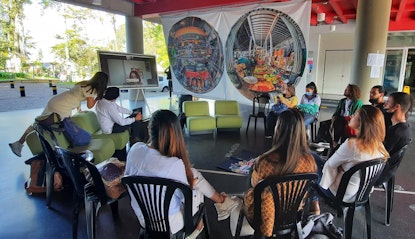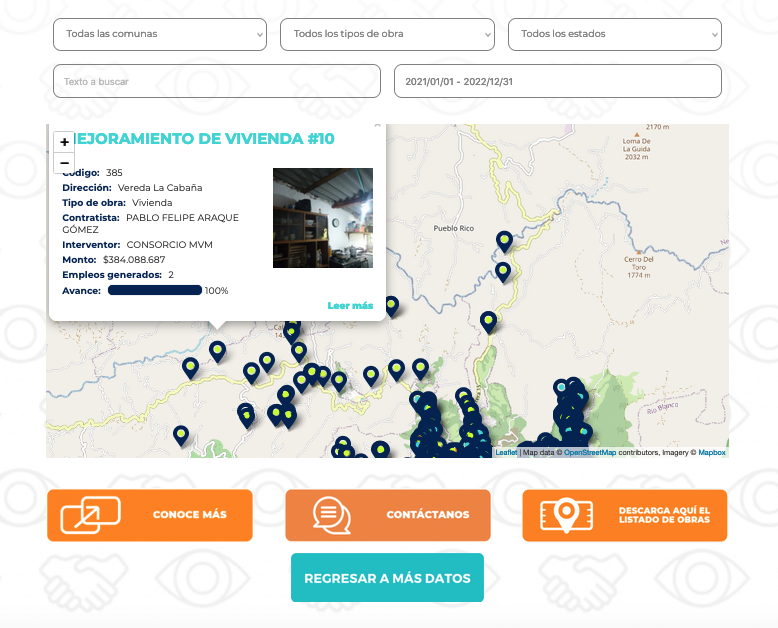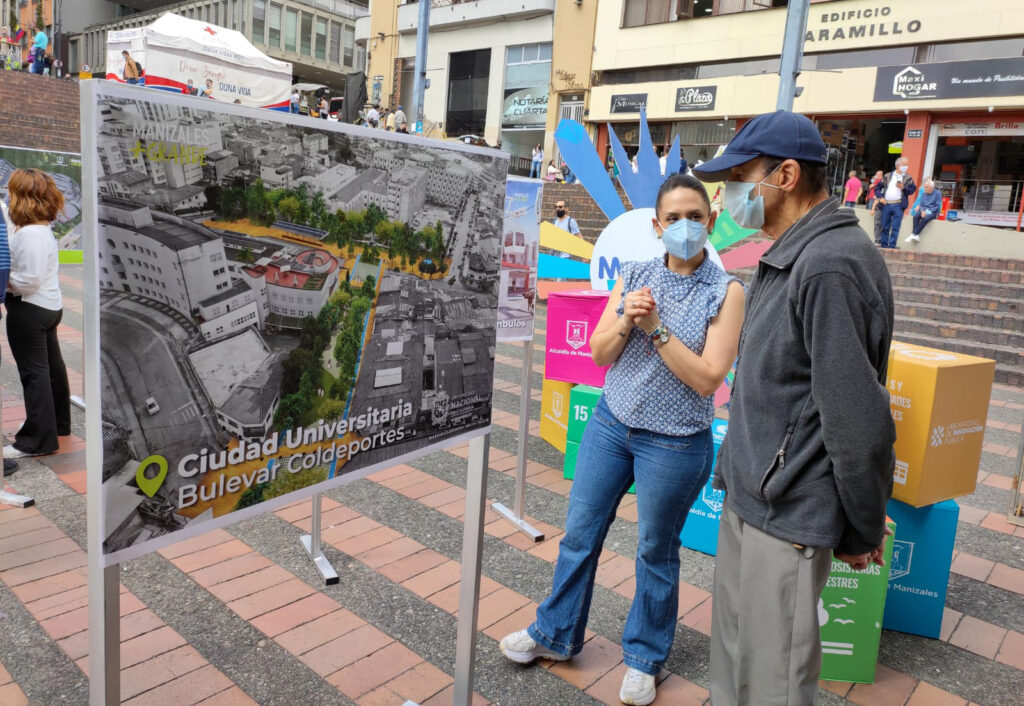Co-creation of the city: Manizales puts innovation and data at the heart of its strategy

In Colombia, open contracting strategies have reached the local government level. Municipalities throughout the country have gradually been introducing initiatives to open up public procurement, create opportunities for businesses and boost citizen participation in the management of public expenditure.
One of the shining examples of this approach is Manizales, capital of the Caldas Department and known as the “City of Open Doors”. The city’s nickname has inspired an intense process of transparency and inclusion with one objective in mind: to rethink the city from a co-creation perspective.
At the heart of the efforts lies the Public Innovation Lab, a platform launched by the local Planning Secretariat and through which the Mayor’s Office reports on its public investment priorities and encourages citizens and academics to find solutions to public problems. The Lab is used to co-create and implement evidence-based improvements to community infrastructure and to measure their impact so as to obtain concrete data that can help to improve quality of life for the people; for example, in designing transport solutions for the city itself and for the university campus.
In the words of Óscar Jiménez, strategic advisor to the Mayor’s Office in Manizales: “If we want to be more in tune with the needs of the people, we need to transform public management and we can only do that if we have a mechanism that allows us to design and try out tools and to co-create solutions. That’s how the Public Innovation Lab came about.”
The Lab comes with a portal where information is published in an accessible format, with 11 data displays on local public management issues (data on transparency, population, mobility, public works and geographic data)). It also has up-to-date open data on public procurement and detailed information about infrastructure works, covering some 430 georeferenced works. Manizales is one of the cities taking part in the Accelerating Results in Open Contracting project that we are running in Colombia (ARCA or ark in Spanish), supported by the British Embassy in Colombia’s Prosperity Program.
Management of public works in Manizales at one click

One of the most popular tools available on the Lab is the Public Works Observatory, which enables users to monitor the progress of works being carried out in the city. On the Observatory, citizens and public officials alike can see the types of works being carried out, where they are taking place and how far they have progressed. They can also look at photos of the works, find out information about the contractors and the contract amount and click on links to the procurement process in the country’s Electronic Public Procurement System (Secop) as well as discovering the number of jobs created. There is also an option for accessing data in situ. Thanks to the use of QR codes, the Observatory can be accessed directly from the place where the work is being carried out and details of the work in question can be displayed.
Developers from the Planning Secretariat in Manizales and the University of Caldas worked hand in hand on this Observatory project, inspired by the BA Obras model used in Buenos Aires. This success story was celebrated in the workshops we organized in 2020, which were attended by the city’s Mayor, public officials, representatives of civil society organizations and private sector representatives as well as journalists.
The benefits of this tool are already noticeable. The Public Works Observatory has improved decision-making. Mayor Carlos Mario Marín Correa and the Planning Secretariat in Manizales are using the Observatory to monitor the progress of works while contractors are using it for their internal reporting. Local newspapers such as La Patria have been using the Observatory as a source of accountability.
“The most frequent user is the Mayor. Before finalizing or auditing a public work, the Mayor or his team uses the Observatory to check its current status and progress and to identify the contractor of the works and who the contractor is working with,” says Jiménez. “Contractors themselves are also using it as part of their accountability process.”
Recognized at the LATAM Smart City Awards 2022, the platform has continued to improve and to bring in new functionalities since its launch in June 2021, and the public recognizes this. In the first year, the number of visits to the portal was 62,000, with 8,000 unique users.

New opportunities for local businesses
The Mayor’s Office in the city is also using public procurement data and open contracting strategies to boost the participation of local suppliers in public procurement processes.
Using filters available on the Observatory, which have been developed in conjunction with the business sector, businesses and entrepreneurs can find out about upcoming calls for tenders and by monitoring budgetary implementation and procurement processes they can gain heads-up information about how the Mayor’s Office is planning to invest its resources.
The Mayor’s Office has also organized transparency fairs and business roundtables to raise awareness among local suppliers about how to participate in the city’s public procurement processes and how to register on Secop.
To make public management, decision-making and resource auditing more transparent, the Lab includes a public procurement dashboard. Users can also track and monitor the goals set by the Mayor’s Office and see how budgetary implementation is progressing.
Manizales has “opened the doors” to collective participation and intelligence. It serves as an example of how a local initiative can inspire the rest of the country and the region as a whole.
Photo: Laboratorio de Innovación, Manizales